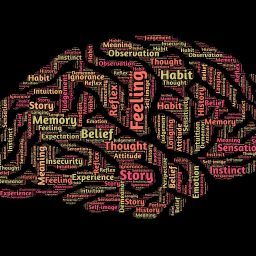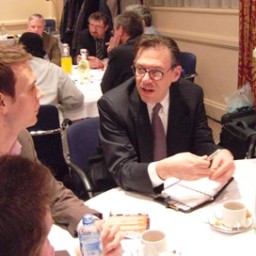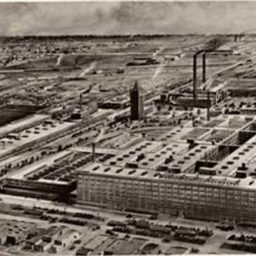
People: David GurteenDavid Gurteen Keynote speaker, writer and conversational facilitatorBooks: David GurteenA Conversation Architect Designs Strategic Conversations David GurteenAPM Conference: Conversational Leadership David Gurteen (2016)Being Truthful Versus Telling the Truth David GurteenChatbot Constraints David GurteenChatbots as Critical Thinking Partners – Talk for Bibliotheca Alexandrina David Gurteen (2024)Chatbots Lack Nuanced Communication Skills David GurteenChatbots Should Supplement … Continue reading How Measures Distort Behaviour David Gurteen (2005)

Intelligence can be described as the ability to perceive or infer information, and to retain it as knowledge to be applied towards adaptive behaviors within an environment or context. | Wikipedia Continue reading What Is Intelligence? Wikipedia

I think “knowledge management” is a bullshit issue. Let me tell you why. I can give you perfect information, I can give you perfect knowledge and it won’t change your behavior one iota. People choose not to change their behavior because the culture and the imperatives of the organization make it too difficult to act upon the knowledge. Knowledge … | Michael Schrage Continue reading Knowledge Management Is a Bullshit Issue Michael Schrage

Organizational culture is the basic tacit assumptions about how the world is and ought to be that a group of people share and that determines their perceptions, thoughts, feelings, and, their overt behavior. | Edgar Schein Continue reading Organizational Culture Is the Basic Tacit Assumptions About the World Edgar Schein

It’s up to us to decide on the kind of conversations we have. The way we talk at the office or factory shapes the work we do; it’s not just machines which force us to be obedient. I want to show how we could make our work a lot less boring and frustrating if we learned to talk differently. | Theodore Zeldin Continue reading It’s Up to Us to Decide on the Kind of Conversations We Have Theodore Zeldin

Understanding our Political Nature: How to put knowledge and reason at the heart of political decision-making Abstract Recognising that advances in behavioural, decision and social sciences demonstrate that we are not purely rational beings, this report brings new insights into our political behaviour and this understanding have the potential to address some of the current … Continue reading Understanding Our Political Nature EU Science Hub (2019)

Technology and Democracy: Understanding the influence of online technologies on political behaviour and decision-making Abstract Drawing from many disciplines, the report adopts a behavioural psychology perspective to argue that “social media changes people’s political behaviour”. Four pressure points are identified and analysed in detail: the attention economy; choice architectures; algorithmic content curation; and mis/disinformation. Policy … Continue reading Technology and Democracy EU Science Hub (2020)

Values and Identities – a policymaker’s guide Abstract This report presents the state-of-the-art scientific knowledge on Values and Identities from an interdisciplinary perspective. Values are said to be the dominating forces in life and Identities represent who we are and to whom we belong. Both shape the political landscape in democracies and have gained in … Continue reading Values and Identities – a Policymaker’s Guide EU Science Hub (2021)

Ralph Stacey’s book, “Complex Responsive Processes in Organizations: Learning and Knowledge Creation,” delves into the intricacies of organizational dynamics, focusing on the interplay between human behavior, decision-making, and knowledge generation within complex systems. Drawing from complexity theory, Stacey explores how organizations are not merely static structures but evolving, adaptive entities shaped by the actions and … Continue reading Complex Responsive Processes in Organizations: Learning and Knowledge Creation by Ralph Stacey (2001)

Technology does not automatically improve conversation, communication or behaviour. | Theodore Zeldin Continue reading Technology Does Not Automatically Improve Conversation Theodore Zeldin

Beliefs are ideas that we hold to be true. However, we have no evidence to support many of them. False beliefs lead us to the wrong conclusions. We need to question and challenge our beliefs continually. Continue reading What Are Beliefs? Ideas that are held to be true but not necessarily supported by any evidence

Attitudes Values Close Pop-up all posts in this chapter What’s the Vibe? Please be patient as this may take up to a minute to load… Close Mindsets are our mental attitudes or approaches to a particular situation or task. They are shaped by our beliefs, values, and experiences and can impact our ability to adapt … Continue reading What Are Mindsets? Ways of thinking, mental inclinations, dispositions, or frames of mind

Agency is our ability to make intentional choices and act independently, shaping our lives and identities. The challenge is transitioning from acquiring knowledge to actively using it in the real world. We need to embrace the dynamic nature of agency to turn knowledge into impactful actions and decisions. Continue reading From Knowledge to Agency Developing agency in a changing world – cultivating the capacity to act

Reversing Cause and Effect Learning ** Close Pop-up all posts in this chapter What’s the Vibe? Please be patient as this may take up to a minute to load… Close When considering knowledge sharing or creating a more collaborative culture, we often talk about the need for people to be open and transparent. These two … Continue reading Be Open and Transparent ** Key traits of knowledge workers

Deep-rooted social and health challenges often seem insurmountable in communities worldwide. Positive Deviance (PD), a strategy born from a nutrition project in Vietnam, illuminates the power of outlier practices to combat such issues. Valuing local wisdom and behaviors offers a sustainable blueprint for transformative, community-driven change. Continue reading Positive Deviance in Action How everyday outliers spark lasting community change

The New Science of Building Great Teams ** Is Noise Always Bad? ** Close Pop-up all posts in this chapter What’s the Vibe? Please be patient as this may take up to a minute to load… Close The research underpinning the Hawthorne effect was flawed, and the story is a myth though being watched does … Continue reading Hawthorne Effect Myth Being watched affects your behavior










